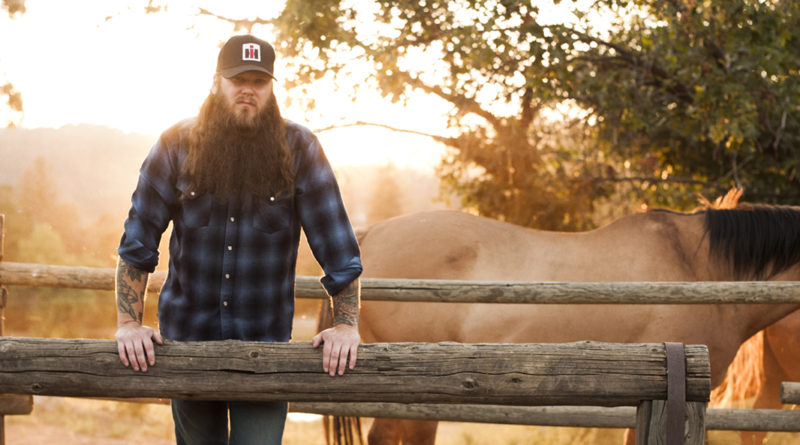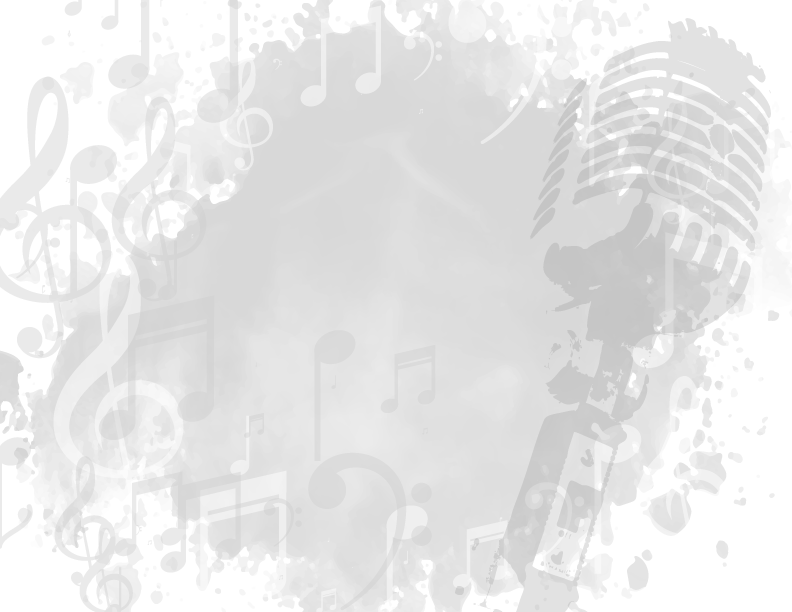Staying The Course: A Conversation With Whitey Morgan
Whitey Morgan and the 78’s latest album, “Hard Times and White Lines,” is a 100-proof bottle of pedal steel, country heaven.
If you like hard times; blood, sweat and tears; and contemplative reflection painted on a canvas of a booze-soaked regret, it’s here in spades.
The baritone-voiced sincerity and authenticity of Morgan is every bit as real as Merle Haggard, Waylon Jennings, and by today’s standards, Chris Stapleton. If you like your country music leaded, true and honest, he’s your ticket.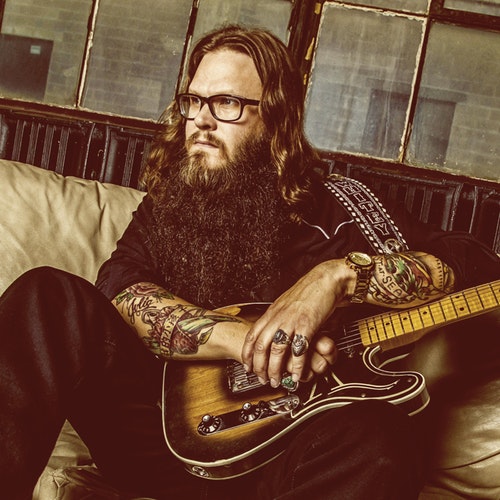
And while Morgan deserves to be mentioned in the same breath as the aforementioned, don’t think for a moment that the Flint, Michigan native is trying to be a carbon copy of anyone else — being Whitey Morgan is all he knows.
“Someone asked whether the new album was going to sound like a Whitey Morgan album,” he said in a phone interview with ListenIowa. “And I said, ‘Hell yes it does! What else would I be here doing?’ ”
Morgan and his band will bring their gritty brand of country music to central Iowa this Friday night, performing at Wooly’s in Des Moines. Alex Williams will open. Doors open at 6:30 p.m., and showtime is 7:30 p.m.
ListenIowa caught up with Morgan recently to discuss the new album, his slow and steady climb, and the state of country music.
You’ve been through a few of these album/tour cycles now. Has anything changed over the years in your approach to things?
It’s definitely gotten more organized, from the early days of just releasing an album whenever, and then touring forever. We don’t just tour and tour and tour; it’s more strategic now. When an album starts to fizzle, we try to hit the smaller markets to try to gain fans so when the next album comes out, those fans will go to the bigger shows. And with the shows being better, we don’t have to fill the days in between with shows just to make some money. It’s definitely quality over quantity.
You’ve been consistently consistent in delivering a certain style — call it outlaw country or what have you — that resonates with people.
This is it. I doubt I’ll stray very far from this path. I’m not one of these guys who’s going to all of a sudden just fuckin’ put out one of these way-off-to-the-side records. That’s not my thing. I like what I do. People who know me know I love my routines. I do the same thing over and over again and don’t have a problem with it.
It’s been a long, steady climb through five studio albums. Looking back at the road you’ve been down, are you happy with how things have transpired to this point?
I couldn’t ask for more. Like you said, it’s been a long, uphill climb, but I wouldn’t have it any other way. When you earn it, it definitely feels better. The fans who have been there from the beginning know how hard we’re worked for this, so they appreciate us more. They love coming to shows that are bigger now, and bring their friends, and love being able to say, “I remember seeing them when there were just 15 people in the club.” There’s no replacing that feeling.
You have a brand new album out, “Hard Times and White Lines.” It’s been three years since your last album, “Sonic Ranch.” Is that gap more a product of where the industry is now, or was it in the natural flow of getting out there and touring and spending a lot of time on the road?
It’s tough because you make your money touring, so you want to stay out there, and take care of your band, and put as much money into your bank account as you can, while you can. But you also have to record a record, and to do that, you have to come off the road. So it’s like this vicious cycle of shit that is really hard to keep up with. And it’s also harder for me to write while I’m on the road, so there’s that, too. It’s like, how are you creative on the road so you can record a new record so that you can stay on the road? It’s a weird thing. I don’t feel really at home in the studio, but this last record, I felt more relaxed and creative and we took a little longer to make it. I wasn’t nickel and diming with the budget and having to think, “We just wasted a whole day, and it cost this much.” That’s probably why all these great records from these great bands took two, three, four months. They didn’t care, because someone else was footing the bill.
One of the new tracks, “Bourbon and Blues” has the line, “Got holes in my pocket where all the money goes/the guitar life can be lonesome/it’s the only life I know.” Is that autobiographical?
Yeah, it is, but a lot of the songs on this record are kind of more reflective songs, too. Two records ago, it was about me hurting, and now it’s about what’s happening now in the moment. A lot of these songs are looking back on me six years ago. I haven’t changed a lot, but I’ve kind of gotten my shit together. My career is better, my home life is better. Me and my wife had a baby boy a couple of years ago, so that’s changed me a lot. I’m still me, but I’m not quite as over the edge as I used to be.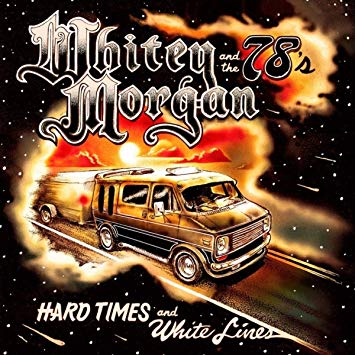
“Carryin’ On” is pure country.
That’s a Dale Watson song that I’ve always loved, and one of the reasons I picked that one is because it’s was like the theme in the van back in the day. We’d get through with a night of overdoing it, and I’d put that song on every morning in the van, and it would just talk to everyone in there.
Did you listen to any artists early on that really turned you in this direction that you’ve embraced?
My biggest influence when I started down the path of where I’m at now was the Waylon (Jennings) double live album in 2000 or 2001. The record they released in 1975 only had like 10 songs on it. They had, like, 50 songs in the can from those two nights, and they finally released all of them later. It’s so raw and the energy is there. The song structure is just so simple and right there. They just relied on Waylon and his big voice and that big driving beat. It was reminiscent of the stuff I grew up listening to, like Bob Seger. There were great lyrics, great voice, it was melodic, but at the same time very basic. A real working-man’s music. I wanted a sound that was that stripped down, but that good. I fell in love with that record, and it kickstarted me to get to where I am now.
You’re from Flint, Michigan, which is known as a blue collar, working man’s city. Was there even a country scene there at all when you were growing up?
There wasn’t much of one. When I was a teen, I was playing in rock n’ roll bands, playing bass and electric guitar. But at the same time this was happening, I was spending a lot of time with my grandfather because my parents had split up, and my mom was working a lot. Dad wasn’t around, so I spent a lot of time with my grandfather, who was from Kentucky, played bluegrass and loved country music. So I’d go to my punk band’s practice and play these power chord songs, then two days later I’d be in my grandpa’s basement and he’d be teaching me how to do some bluegrass run on the guitar, or the harmonies to a Jimmy Martin song. So there was always that conflict and fighting back and forth. But I’ve always loved country. I think the first song I learned to play on a guitar was a country music song.
And having those extra “bullets” in your holster from the punk rock side probably helps you in some way in what you do now.
Yeah, we’re a lot louder than most bands and have an aggressive energy; that all comes from Michigan. I can’t get rid of that.
Country music has become segregated in recent years. There are fans of your style, and then there are fans of the Florida Georgia Lines and Kane Browns. Good or bad, it’s blurring the line of what is country music. When you take a step back and look, what do you see?
I think nowadays, a lot of it has gotten so far removed from being country music; it’s just pop music. The thing is, though, the definition of pop music is “popular music.” But I don’t think it’s as popular as what it used to be. I think what we’re doing now, and the Chris Stapletons of the world, it’s becoming more popular. I’m hoping that we can get some more people across on our side as far as fans and musicians that want to do something more real like that. Hopefully that’s what happens in the next decade and we can get back to the lesser of two evils. Or maybe the worst guy in country music is not all that bad anymore, where the guy I really can’t stand the most is actually not that bad. (laughs) That’s how it was in the old days. I couldn’t stand guys like Tim McGraw and shit like that, and now I look at them and it’s like, “Shit, that’s a thousand times better than what’s going on now.”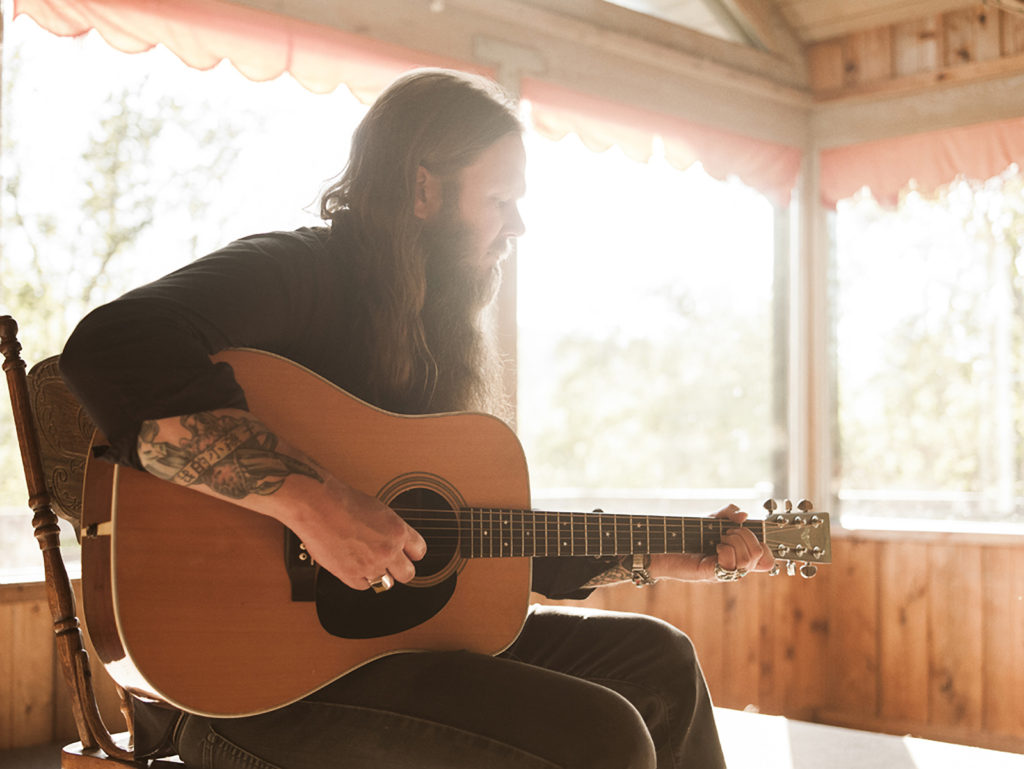
Do you consider yourself a preservationist, then? Or don’t you care to fly any flags and be that guy?
I don’t do that too much anymore. When I was younger, I was upset and made the “Fuck Pop Country” shirts when it was really starting to get bad. There were these Luke Bryan songs and those guys, and I was like, “Oh my God, this is ruining what I care so much about.” But now I’m more at this point where I’m thinking there’s nothing that can be done, and to live and let live. They can do whatever they want to do, and I’m going to do whatever the hell I want to do. They can make their money and satisfy their fans, and I’ll do the same on my side of the fence. I literally do not have the time to think about these people anymore; it’s not even worth it. There’s nothing I can do about. I just said, “Fuck it,” and I just try to support the people out there making real music.
HARD TIMES AND WHITE LINES TRACK LIST
- Honky Tonk Hell
- Bourbon and the Blues
- Around Here
- What Am I Supposed to Do
- Just Got Paid
- Hard to Get High
- Carryin’ On
- Fiddler’s Inn
- Tired of the Rain
- Wild and Reckless
WHITEY MORGAN AND THE 78’S TOUR DATES
Nov. 8 /// Indianapolis, IN /// The Vogue
Nov. 9 /// Des Moines, IA /// Wooly’s
Nov. 10 /// Springfield, MO /// The Complex
Nov. 14 /// Wichita, KS /// WAVE
Nov. 15 /// Colorado Springs, CO /// The Black Sheep
Nov. 16 /// Grand Junction, CO /// Mesa Theater
Nov. 17 /// Greeley, CO /// Moxi Theatre
Nov. 29 /// West Hollywood, CA /// The Troubadour
Nov. 30 /// San Francisco, CA /// Great American Music Hall
Dec. 1 /// Chico, CA /// The Senator Theatre
Dec. 2 /// Petaluma, CA /// Mystic Theatre
Dec. 6 /// Seattle, WA /// Neumos
Dec. 7 /// Eugene, OR /// Hifi Music Hall
Dec. 8 /// Bend, OR /// Midtown Ballroom
www.whiteymorgan.com

